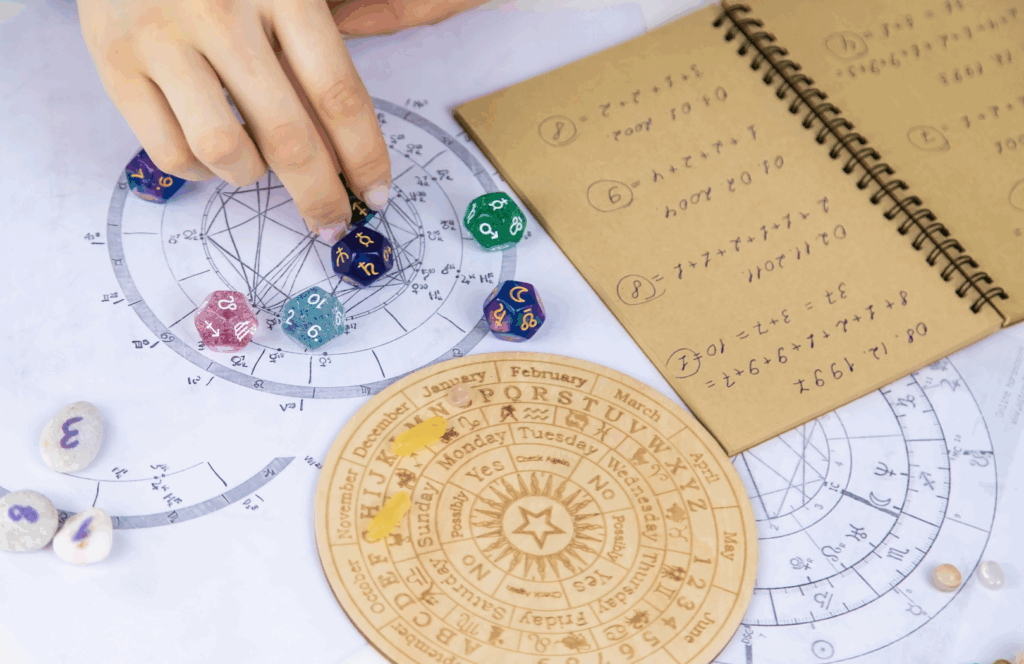Menopause is more than a physical transition, it’s a profound passage that can reshape how we view our bodies, our vitality, and our sense of purpose.
In the spa and wellness world, this stage of life is increasingly recognised as a time to embrace self-care, healing rituals, and restorative therapies that support both body and spirit. From mindful practices to soothing treatments that ease symptoms like insomnia or hot flashes, menopause wellness is about creating space for renewal and radiance.
Seen through an astrology perspective, menopause aligns with the second Saturn return – a cosmic invitation to release, transform, and step into deeper wisdom
In the reflection that follows, poet and mindfulness teacher Felicitas Kusch-Lango shares her perspective on this transition and the deeper wisdom it can unlock.
The portal to Radiance in the third phase of our lives
These are two inevitable portals most women step through in their fifties: the onset and journey through menopause and the second Saturn transit.
A lot of wonderful things can happen after we turn fifty, sixty, seventy, or even eighty, but the advent of menopause asks us to engage first in a profound journey of release.
Our body goes through many uncomfortable and uncontrollable changes: hot flashes, insomnia, weight gain, and irritability, among others. After the journey of menopause, we realise that our body looks and feels different. This can be painful.
The planet Saturn reminds us though that to gain wisdom we have to go through a certain amount of suffering to grow. To enter the next cycle of life, we need to let go of all that is not necessary anymore.This is not easy!
Astrological Wisdom for Navigating Change
The first “Saturn return,” as it is called in astrology, happens between the ages of 29 and 30. At that age, this transition asks us to firmly step into adulthood, build the foundations of our adult life, and let go of some of our youthful follies and ambitions.
The second Saturn return, in our late fifties, however, delivers another invitation: it is, in some ways, the other book end to the first. Instead of building, we are asked to let go, release, and surrender the many things that we have built and invested in since the first Saturn return: career, parenting, homes, dreams that did not come to fruition, and so forth.
Even though none of these roles and realities come to a sudden halt, including our menstrual cycle, we come to a number of sobering realisations: we may have reached the peaks of our careers, our children have grown up and are living their own lives, and our homes may start feeling oversized and not meeting our needs anymore.
The Initiation into a New Life Cycle
During this time we must be willing to go through an initiatory process: face this new emerging reality, acknowledge our fears, and accept our losses and the fact that we are inevitably entering a new life cycle. Until now, time seemed infinite; now the reality of a limited amount of years ahead of us beckons.
If we engage consciously in this process that often lasts a number of years, with periods of introspection, journaling, ritual, contemplation, and grieving, we gradually emerge into a new version of ourselves. This process of acceptance and letting go needs to be met with our utter compassion, self-love, and with the support of friends and allies.
Our culture emphasizes the losses because so much that is valued in our culture has to do with youth, a certain kind of beauty, vibrant health, and strength. These inevitably start to diminish as we age. Our culture is failing to see the other beautiful elements that emerge during this process: a liberating sense of freedom, deep compassion shaped by our own struggles and missteps, and the wisdom that comes from a long and rich life.
Embracing this, we embody the legacy of a life well lived. A life well lived does not mean a successful life in the traditional sense of the word but instead a life in which we have come to a place in which we have forgiven, learned from our mistakes, and reached a deep understanding of our own selves, and therefore have reached a place of sovereignty.
The Archetypes of Womanhood: Maiden, Mother, Crone
The phases of a woman’s life are often described through three archetypes: a youthful girl (the maiden), a nurturing and creative mother figure (does not necessarily mean having raised children also refers to the time when a woman “mothers” in a career, cause, or artistic enterprise), and a wise and independent old woman (the crone).
The word crone is a word that many women abhor, associating it with images of an old, ragged and cantankerous woman. But this is a distortion of the original meaning. Barbara G. Walker in her book “The Crone,” says: “It was the medieval metamorphosis of the wisewoman into the witch that not only transformed her cauldron from a sacred symbol of regeneration into a vessel of poisons and changed the word Crone from a compliment to an insult, but also established the stereotype of malevolent old womanhood that still haunts elder women today. If a man is old, ugly, and wise, he is a sage. If a woman is old, ugly, and wise, she is a saga—that is, a witch.”
Reclaiming the Radiant Crone
It is now our task, as women in the third stage of life, to charge this archetype with a different quality now that, over the last few hundred years, our role in western society has evolved and transformed and presents us the opportunity to change this archetype again.
I like to call this archetype “the radiant crone.” The radiant crone carries her age with pride and has discovered her beauty beyond the cultural stereotypes. She is curious and spacious. She loves her body unconditionally without the need to make it look younger. She knows she has earned the right to speak her truth.
Unburdened by many responsibilities, a radiant crone lives unapologetically at her own pace and says no without hesitation to what and who she does not align with. Her spirituality deepens naturally as she faces her mortality with awareness and with unapologetic vulnerability. She gives herself wholeheartedly to all that she loves, whether it is her career, gardening, taking care of her grandchildren, rescuing abandoned dogs, traveling the world, creating art, or mentoring younger women and men.
She has fully reclaimed the quality of the wise woman. She has earned it – she has walked through the fire of transformation and is rising like the phoenix from the ashes. She has become a radiant crone.
Felicitas Kusch-Lango is a poet, coach, and astrologer who supports women navigating life’s big transitions. She offers online consultations worldwide and is the author of Poems for Women of a Certain Age.
Discover more wellness blog posts HERE








